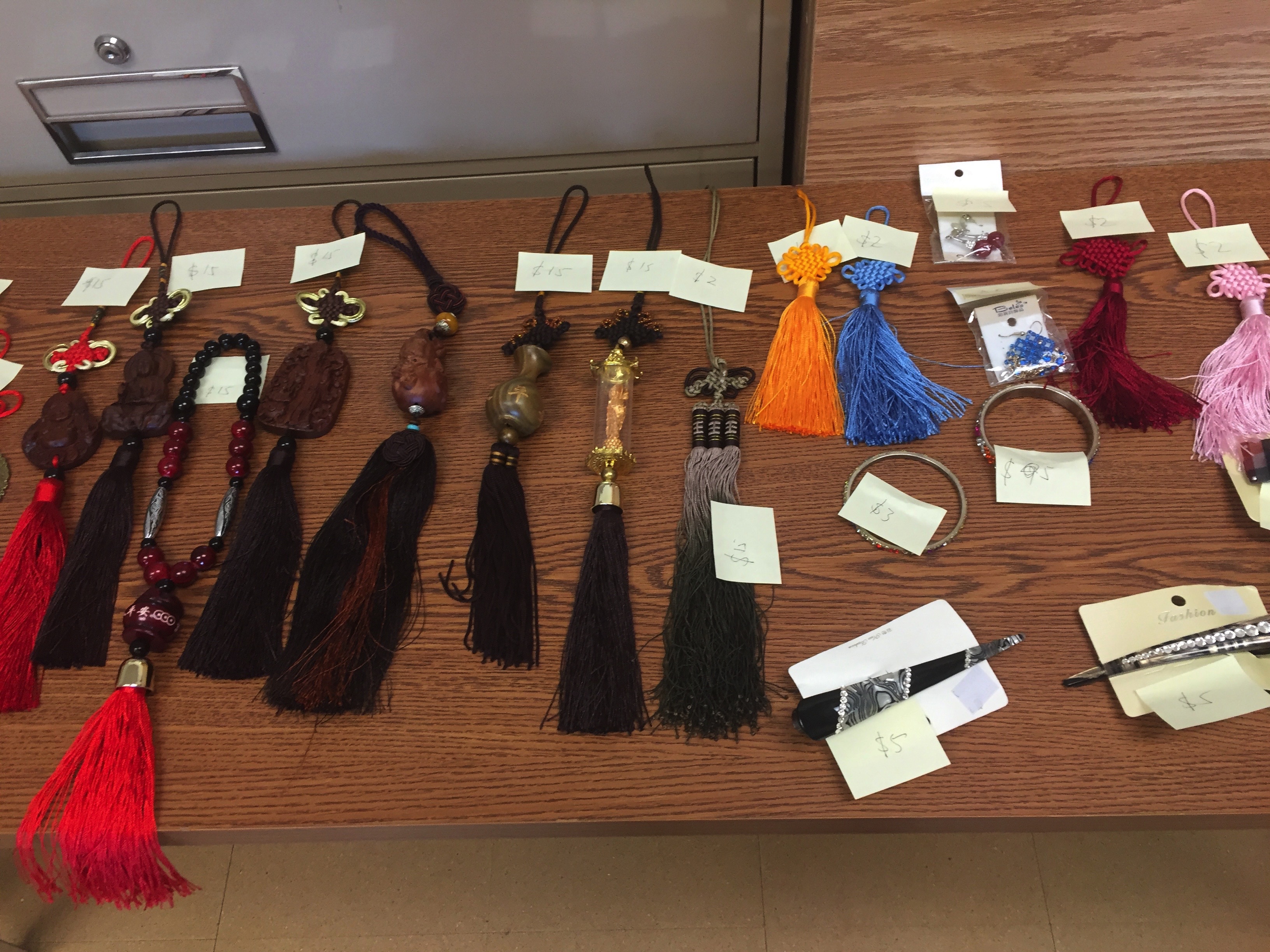By Mikey Bramble
What does it mean to be kind and caring? What does it mean to be helpful? What does it mean to be motivated? These are all things that people seek in a person. What most people tend to forget is those are not just human qualities. These are qualities that can be found in animals. One animal that has these characteristics is people’s best friend the dog.
Dusty and Saint were Dr. J’s service dogs. Saint was Dr J’s devoted companion for 14 years. She passed away this past fall. Saint was a Black Labrador and Dusty is a Chocolate Lab. Both had different temperaments. Saint was calm, quiet and focused on Dr. J. Saint helped to raise Dusty.
Although her personality is different from Saint’s, Dusty, UMPI’s chocolate kiss, is still one of the most kind, caring, helpful and motivated beings on this planet. Dr. J has had Dusty since Dusty was about two.
When did Chocolate Labs become part of the mix for service dogs? We have to look back in the history of Labrador Retrievers to identify this happening. Chocolate Labs were first acknowledged by the United Kingdom Kennel Club in the late 1800s. They were then acknowledged by the American Kennel Club in the 1920s. It wasn’t until the 1960s in the United States that Chocolate Labs or Liver Colored Labs became popular.
There was a difference in how they were raised in the United States from the United Kingdom. In the United Kingdom, Labs were bred for shows. It wasn’t until the 1960s that the Chocolate Labs were shown to be excellent as field Labradors. They were bred to help work in fields. This means they were bred to take signals or voice commands to help with things such as herding sheep and retrieving while hunting with their masters. It’s not a big leap for them to take commands as service dogs. But it’s clear that acting as a service dog requires much different training from that of a working dog who herds sheep or aids her master who is hunting.
Service dogs are trained from when they’re born until they are a year-and-a-half or two years old. It would be usual for them to be raised by a series of people called Puppy Raisers for their first year. Puppy raisers are generally volunteers who work with animal organizations to socialize the puppies and begin their assistance training. Betsy Sawhill Espe, UMPI”S Chief Business Officer, spoke about raising guide dogs for the blind. “You’re assigned a puppy to work with, but you never get to keep the puppy all the time. You share the raising duties with at least three volunteers. That’s done so that the puppy does not bond with any of the volunteers. The goal is to have the puppy bond with the partner,” said Betsy.
Dusty is highly devoted to Dr. J. Betsy has seen that devotion. “Dusty is more than capable of doing all of the things Saint was trained to do,” Betsy said. Betsy has also worked a little with Dusty to help her learn a few things. To further show how devoted she is to Dr. J, Dusty in the past few months has stepped up with helping out. She has started opening more doors. Dr. J would say to Dusty, “Open the door.” Even though it sometimes takes her a few tries, Dusty does get the door open and clearly understands the task she must do. “She will pick things up off the floor and retrieve things for Dr. J. There are times Dusty has a hard time handing things over,” said Betsy.
Dusty came to Dr J from a group who train service dogs and match them with handlers or owners. Only the best dogs move forward from puppyhood to pairing with a human. Is that true of Dusty? Yes and no. She has all the knowledge of what it takes to be a service dog, however she does have epilepsy. Having such a serious medical condition prevents her from being a reliable full-time service dog.
Like most Chocolate Labs, Dusty does have a “squirrel” mentality. This means she is easily distracted. Even though she is easily distracted, that doesn’t stop her from learning new things to help Dr. J. Some of Dr. J’s students have seen how Dusty has stepped up despite the “squirrel” mentality. One of these students is Ricky Goupille. “The desire to be a service dog is just as strong in Dusty as it was in Saint,” Ricky said. Her energy can be seen when she is outside chasing a ball.
Dusty is not just an energetic and motivated service dog. She is a companion to Dr. J. She is a reason Dr J can do more. Dr J doesn’t live her life with any boundaries and neither does Dusty. Dusty went with Dr. J to Alaska in the summer of 2022. She has also accompanied Dr. J to Worcester, Massachusetts, to support Dr. J while she was rappelling down a 110-foot building. As long as Dr. J is giving her commands, she will follow.
At a typical class or meeting, Dusty will lie down on command and be quiet most of the time. For the students and colleagues it is a pleasure to get to know Dusty.



